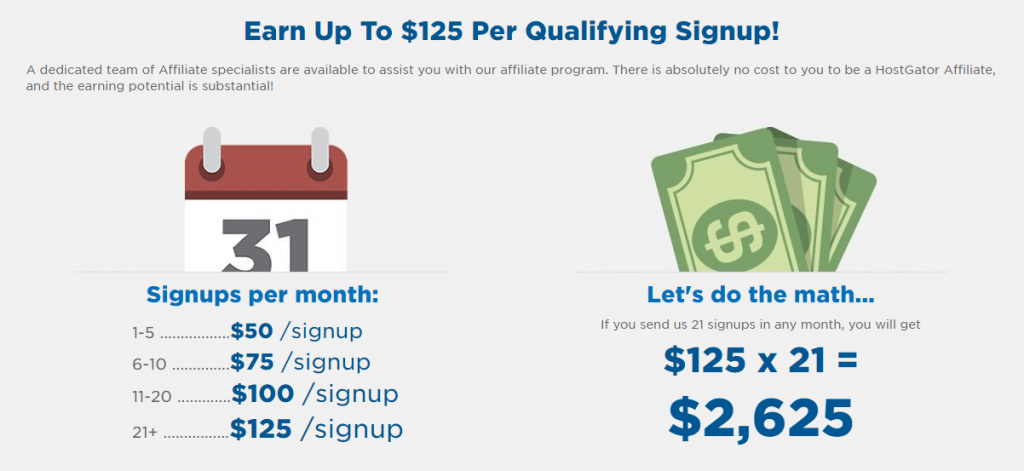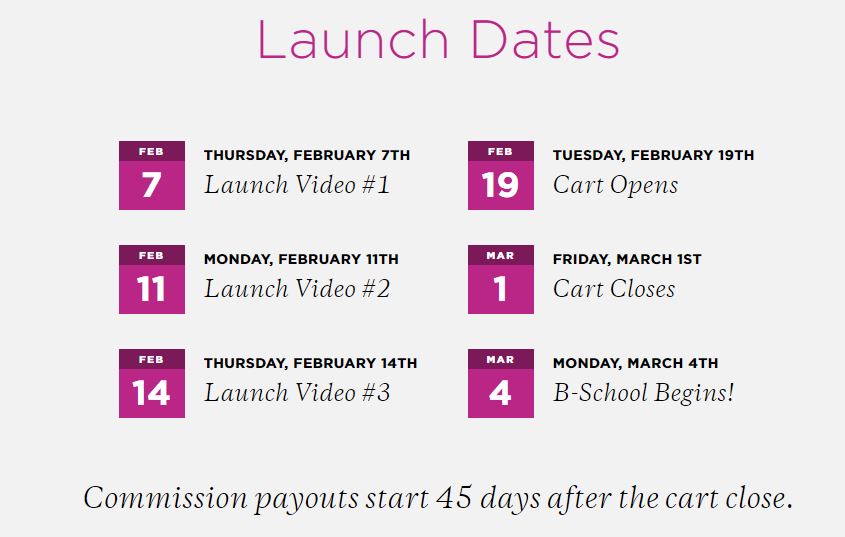Affiliate Marketing • 29 min read
When it’s just you running your affiliate program, you probably learn over time what works for you and what doesn’t, what you’re willing to give affiliates and what you expect them to give you. You know how to recognize the great deals and which deals to run away from.
But sometimes it gets tricky, because you recognize both the potential of a deal and what it could cost you if you’re wrong, and it’s not always clear what will happen once you’ll sign the contract.
And it gets trickier once you start building a team – different people, different preferences, different comfort levels.
But running an affiliate program can be simpler if you have a set policy, that’s clear to everyone involved in operating it.
And it can give you the freedom to disconnect from email, Skype and your phone when you’re on vacation or when you’re at a mastermind meeting, and need the peace of mind to focus on your plan for world domination.
Today, we’ll tell you exactly what to include in both your external and internal JV policies, so you can just go ahead and figure out the details.
What to Include in Your External JV Policy to Make it Easier for Affiliates to Say Yes
An external JV policy is all about how you’re taking care of the affiliates that are spreading the word about your products. This is the information they need to know when they sign up, and the promises they expect you to keep.
So what should you include in your external JV policy?
Your Commission Structure
Here is where you include how much you’ll pay per click, lead or sale. If you offer bonuses, rewards or increased commissions after a certain level – that you don’t mind that your affiliates know about in advance – list them here.

Source: HostGator
Your Payment Terms
Let your affiliates know when you’ll pay them – or how often, if it’s a recurring deal. Let them know if you’re only starting to pay once they reach a certain amount of commissions, or if quick cancellations get deducted from their commissions.
Also, be sure to let them know what’s the extent of their cookie life. Is it a lifetime cookie, so if their audience member makes a purchase in three years, you’ll still pay them the commission? Or is it a temporary cookie, say, for the first 30 days since the first click?
Your Launch Schedule Breakdown
Affiliates need to know when different stages of your launch get rolled out. Let them know when you’re starting to sprinkle free ungated, but related, content, when you’re releasing gated content like webinars, when different bonuses become available, when the cart closes – and anything else that goes into your launch.
Letting them know the schedule in advance will help them figure out what they need to do, and when to test and warm up their list to buy from you.

Source: Marie Forleo
Your Target Persona
When an affiliate chooses whether to work with you, she needs to know that there’s a good audience fit, that your ideal buyer is indeed present in her list, so that she doesn’t burn her list trust.
It’s much better that an affiliate that doesn’t fit skips a deal, but leaves the door open for long term collaboration, than have her join your launch, thinking your product can fit her audience, only to see poor results.
Set your affiliates to success, and they’ll help you multiply yours.
What to Include in Your Internal JV Policy, to Ensure All Your Affiliate Managers are On the Same Page
Speaking of multiplying your success, setting an internal JV policy will help you do just that. We’ve seen a lot of companies skip this, and then waste a lot of time trying to figure everything out from scratch every single time.
Save your affiliate managers some precious time, so they can focus more on building relationships and selling, by making sure they understand your expectations from them, from partners, and from the deals they pursue.
Your Weekly or Monthly Expectations of Your List
Start with the end in mind.
Make it clear to your team how much revenue you expect to generate from your list every month. You could decide on a minimum amount each revenue source, like affiliate mailings, needs to contribute to that.
That will help you make some of the following decisions involved in developing your internal JV policy.
Choose White Label Partners
If you have people or companies you love working with, they’re a good fit for your audience, their offers always convert really well, and they always pay on time and do what they say they’ll do, consider white labeling them in your internal JV policy.
White labeling means that whenever you have an opening in your schedule – say, a partner didn’t send you swipe copy on time for you to promote them – you promote your white label partners.
This way, you never rely on one partner at a time to make or break that month’s revenue. You always have a backup plan.
Moreover, you can approach a few of these companies and see if they’ll give you an extra 5% or 10% commission for white labeling them.
Blacklist Partners
Ever worked with a partner who didn’t pay on time, didn’t mail for you as promised, or was simply really terrible to work with?
Us too.
That’s why we keep a blacklist partner list – companies and individuals we never want to work with again.
We like to add a quick reason next to each name, so we can remember why they’re there, and so that team members who haven’t worked with them directly understand why they can’t sign deals with these partners.
When Affiliates Need to Submit Assets if They Want Us to Mail for Them
We don’t like sending the exact copy that all other affiliates are sending, so we always edit swipe copy that affiliates send us. Plus, we like to test different headlines, copy and images.
And before we blast out a partner’s message to our entire list, we test it out on a small segment – say, 25,000 subscribers.
All this takes time.
Therefore, we have a very strict policy that partners need to send us their marketing assets up to 5 business days before we’re supposed to mail for them. If they don’t, we bump them down to the next available spot, and mail for one of our whitelist partners instead.
This might be hard to follow through with sometimes, especially when you think this could be a really strong partnership, but if you don’t set up boundaries that support your team’s needs and what it takes for your company to be a successful affiliate partner, no one will.
Always think of the long-term game.
If you enforce your own boundaries, your partners will know next time that to work with you, they need to send you their assets on time.
When Your Affiliates Can Increase Commissions Without Asking for Permission
Remember we mentioned you need to include payment structures in your external JV policy, and that sometimes, it’s a good idea to let partners know in advance how stepping up their game can lead to higher commissions?
You don’t want to do that with every deal, because it’s not always in your best interest to pay higher commissions to everyone.
That said, we recommend figuring out in advance what’s your policy about commission increase whether or not you publicize it. Making it clear to your affiliate managers what they can do for high performing partners without asking for leadership’s approval can make everyone’s work more efficient.
Types of Deals Your Company Approves
Figure out what’s the minimum you’re willing to accept as a payment per click, lead and sale, and get it in writing, so your affiliates know what to say yes to, and what deal to turn down or negotiate harder.
Also add how fast you’re open to paying your own affiliates, and if that changes based on how much partners sell for you. Are you willing to pay faster to small affiliates if they’ll say yes to a smaller commission? Do you pay your highest selling affiliates faster no matter what?
Get it in writing.
How Many Reciprocal Mailings You’re Willing to Do
Many people’s favorite type of deal includes reciprocal mailings – you mail for us, we’ll mail for you.
But if you build a solid affiliate program, that will rarely be possible to do for every partner. If you have a launch with 40 or 700 partners, and you try to mail for everyone, you will burn your list way before you’ll be done with all your mailings.
Make it clear to your affiliate managers how many deals you’re open to reciprocating every week or every month, and have them use the other clauses in your internal JV policy to decide who to give these spots to.
For the rest, make a list of alternative ways to reciprocate mailings that work for you and, when you can, let partners choose.
What You Define as a Successful Mailing to Your List
One of the ways your affiliates can know which types of products, deals and partners to say yes to is clarifying to them what you consider a successful mailing.
First, figure out what’s the minimum you need to make off a test mailing to a small segment of your list (say, 25,000 subscribers). Tell affiliate managers to get it in their contract that, if they generate anything less than that, they won’t be blasting it off to the entire list.
You know you would test it if it was wine, so make sure your team tests every affiliate deal too.
If it doesn’t work as well as they hope, give your managers alternative ways to reciprocate partners, like partnering on social media or connecting them with other affiliates who might be a better fit.
Second, if the test mailing was successful, and your affiliate can email the entire list, get them to pay attention to what happens next. Make a minimum revenue requirement you need to make with this type of mailing to promote this type of product or partner again.
Third, pay attention to what your audience is saying. The feedback you get via email and on social media could also be a good indicator to whether you should work with this partner again. We recommend pre-qualifying the types of deals you fight for and the type you run away from, but then pay attention to audience feedback to make sure you made the right choice.
Other Important Factors
Every company is different, so as you work on your internal JV policy, you might come up with additional aspects that are integral to your affiliate program’s success, or are non-negotiable for you.
For example, if you have a list of vegans, you probably won’t want to promote any meat-related offers or products that have been tested on animals. But it could be other things, like only working with companies that align with your company values, or companies that treat your affiliate managers respectfully.
A Great JV Policy Sets the Boundaries that Give You Freedom
Setting a JV policy takes a lot of work upfront, but the reward is so worth it – you get a working system, that anyone relevant on your team can access, and you no longer need to answer the same question 10 times a day or be tied to your inbox, in fear your affiliate managers sign the wrong kind of deal.
Think of your JV policy as the foundation that sets your managers to success. If they know what makes a great deal, they’ll put all their efforts in the right places and be more successful at their jobs. You’ll get a higher revenue with less work. It’s a win-win.

